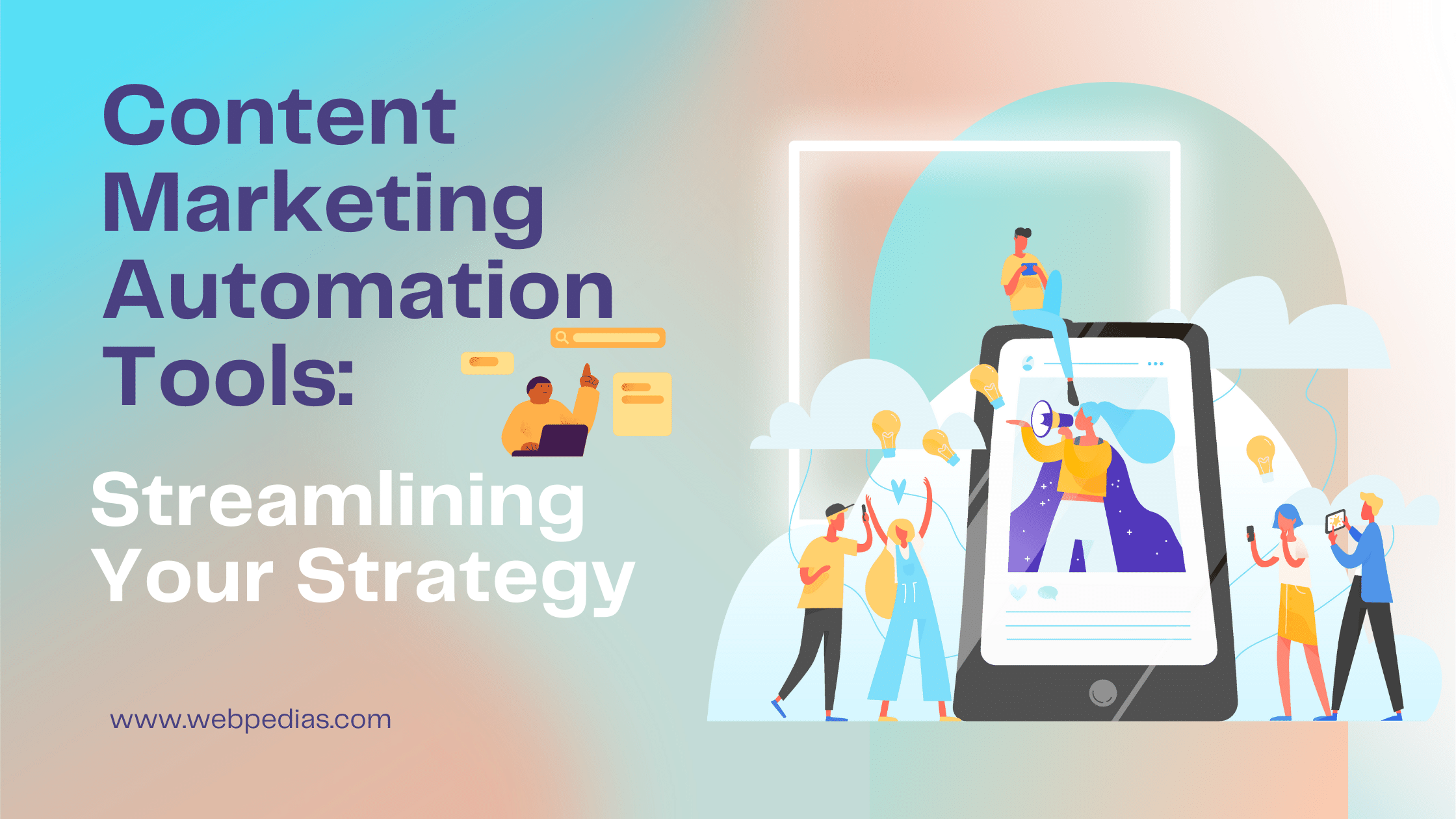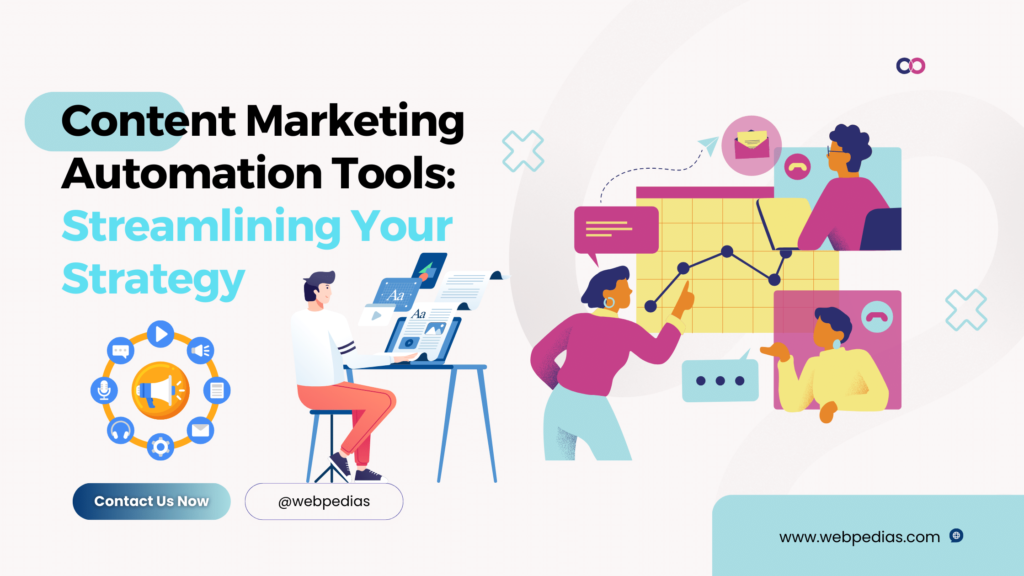Content Marketing Automation Tools: Streamlining Your Strategy
In the fast-paced world of content marketing, meeting the demand for high-quality content can be a daunting task. This is where content marketing automation tools come to the rescue. These powerful platforms and software solutions support your content creation, are designed to streamline distribution and management processes. In this comprehensive guide, we’ll explore the world of content marketing automation tools, why they matter, how to choose the right one, and the transformative impact they can have on your content marketing efforts.
Why do content marketing automation tools matter?
1. Efficiency and time saving
Automated scheduling: Streamline content delivery across different channels and platforms.
Content creation: AI-powered automated content creation from articles to social media posts.
2. Consistency in Branding
Branding Guidelines: Ensure brand consistency across all content pieces, even if created by different team members.
Templates: Use predefined templates to maintain a consistent look and feel.
3. Data-driven insights
Analytics: Get valuable insights about the performance of your content across multiple channels.
Content Optimization: Use data to refine your content strategy for better results.
4. Personalization at scale
Segmentation: Target specific audiences with personalized content.
Dynamic content: Create content that adapts based on individual user behavior.
5. Workflow Management
Collaboration: Streamline the content creation workflow from ideation to publication.
Approval Processes: Ensure that content goes through the necessary approvals before publishing.
Types of Content Marketing Automation Tools
1. Content Creation Tools
AI-generated content: Platforms that use artificial intelligence to create articles, product descriptions, and more.
Content templates: Tools that provide pre-designed templates for different types of content.
2. Content Management System (CMS)
Centralized storage: Store and manage all your content assets in one place.
Version control: Easily track and manage changes to content.
3. Social Media Management
Scheduling: Plan and schedule social media posts in advance.
Analytics: Track engagement and performance on social platforms.
4. Email Marketing Automation
Segmentation: Send targeted email campaigns based on user behavior.
Drip Campaigns: Automate email sequences to increase leads.
5. SEO and Content Optimization Tools
Keyword research: Identify relevant keywords for content optimization.
On-page SEO: Analyze and optimize content for search engines.

How to Choose the Right Content Marketing Automation Tool
1. Assess your needs
Identify pain points: Determine where your content marketing process is most time-consuming or inefficient.
Set goals: Define what you want to achieve from the automation tool, such as improved ROI or increased audience engagement.
2. Compatibility and Integration
Compatibility: Make sure the tool integrates seamlessly with your existing software and platforms.
Scalability: Consider whether the tool can grow with your content marketing needs.
3. Ease of use
User-friendly interface: Choose a tool that your team can easily learn and navigate.
Training and support: Check if the tool offers adequate training resources and customer support.
4. Features and Capabilities
Content types: Evaluate whether the tool meets your specific content types (blog posts, videos, infographics, etc.).
Automation: Evaluate the level of automation offered, from content creation to delivery.
5. Budget Considerations
Cost: Determine whether the equipment fits your budget constraints.
ROI potential: Consider the potential return on investment in terms of time saved and improved outcomes.
Impact of Content Marketing Automation Tools
1. Increase in productivity
Automation tools can significantly reduce manual tasks, allowing your team to focus on strategy and creativity.
2. Consistent Branding
Maintain a cohesive brand image across all content assets while strengthening brand trust and identity.
3. Data-driven decision making
Access to analytics and insights empowers you to make informed content marketing decisions.
4. Personalization at scale
Serve personalized content to your audience at a level that would be impossible to achieve manually.
5. Competitive Advantage
Businesses that adopt content marketing automation gain an edge by delivering quality content efficiently.
Challenges and ideas
1. Quality of content
Automation can streamline content creation, but it’s important to maintain quality standards.
2. Data Privacy and Compliance
Make sure your automation practices are compliant with data privacy regulations like GDPR.
3. Balancing automation and authenticity
Even when using automation, maintain the human touch in your content.
Future Trends in Content Marketing Automation
As technology continues to evolve, content marketing automation tools are likely to include even more advanced features. Artificial intelligence and machine learning will play a more prominent role in predicting content performance and optimizing strategies. Staying up to date with these trends will be key to maintaining a competitive edge in the content marketing landscape.
Conclusion
Content marketing automation tools aren’t just time savers; They are essential components of a modern content marketing strategy. By automating repetitive tasks, maintaining brand consistency, and using data-driven insights, these tools empower businesses to deliver relevant, personalized content at scale. Embrace the power of content marketing automation and watch your content strategy flourish like never before.



